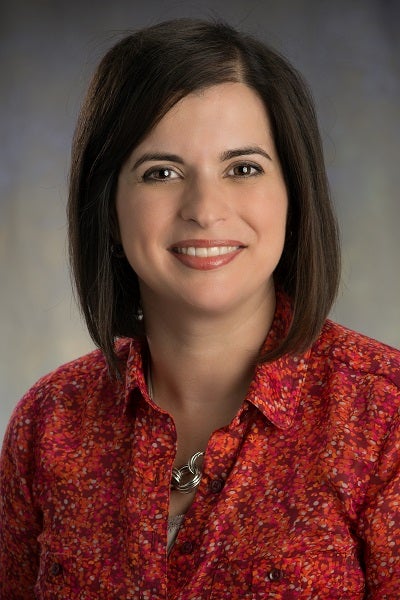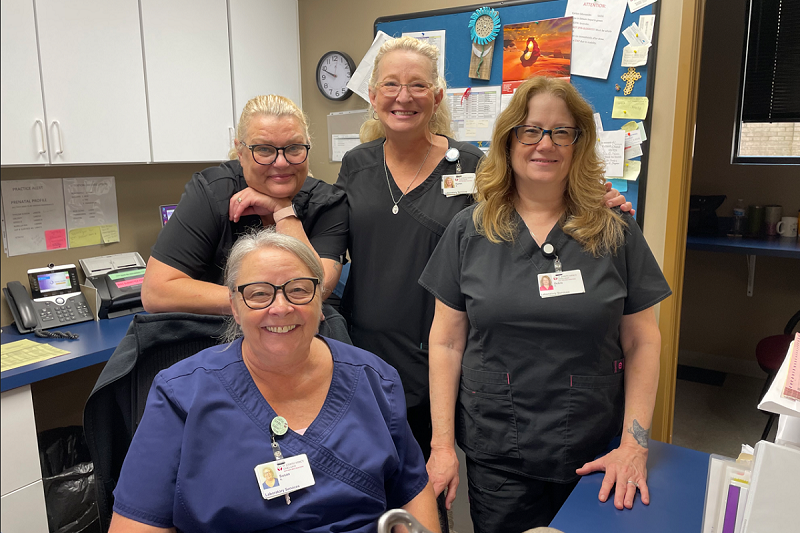A Q&A that might surprise you. Almost all patients will interact with a laboratory at some point in their health care journey because lab services are critical to diagnosing and treating patients. But what do you really know about what happens inside a lab or what it’s like working in one? 
Isabel Gauss, MT, is the executive director of Laboratory Operations for Trinity Health Michigan. She is certified through the American Society for Clinical Pathology — the world’s largest professional organization for pathologists and laboratory professionals. Isabel recently sat down to give us an inside look at what goes on inside a Trinity Health Michigan lab.
Q: What services are provided in the lab?
Isabel: The laboratory team provides diagnostic and screening test results for patients, both in the hospital and those seen in an outpatient office. We test blood, tissues, and other samples to help diagnose illnesses and monitor patient health. More than 70% of medical decisions depend on laboratory test results, so our clinical laboratories are critical to our health system delivering care.
Q: How many tests are processed across Trinity Health Michigan laboratories?
Isabel: Trinity Health Michigan laboratories process an impressive 11.4 million tests per year! We have 40 draw stations and 10 hospital-based labs.
Q: Who works in the lab?
Isabel: Trinity Health Michigan laboratories employ approximately 900 full-time colleagues. The Laboratory Department a lot of different positions, both clinical and non-clinical, that form a large team:
- Administrative Assistants (assist with pathology send outs and patient reports);
- Lab Couriers (deliver samples);
- Laboratory Service Representatives (interact with providers, office staff);
- Cytotechnologists (study cellular samples to detect precancerous, malignant, and infectious conditions);
- Histotechnologists (cut and prepare tissue samples for microscopic diagnosis);
- Lab Technicians (process lab samples);
- Medical Laboratory Scientists (perform scientific testing on a variety of biological specimens);
- Pathologists (medical doctor who specializes in diagnosing medical conditions using laboratory analysis);
- Pathology Assistants (specialize in gross examination of surgical specimens); and
- Phlebotomists (perform blood draw/venipuncture).
Q: What is your favorite thing about working in the lab?
Isabel: There are many reasons I love working in the lab. At the top of the list is working with an amazing group of dedicated laboratorians who are committed to providing the best service and results to our patients. I can think of so many examples where our staff take ownership and initiative. Here are just a few:
- Draw station staff working late to serve that last patient so that they can get their needed medication;
- Medical Laboratory Scientists who train to ensure our blood coolers go out the door as fast as possible;
- Lab Couriers who drive through all sorts of weather to make sure samples get tested on time; and
- So many more exceptional stories!
Q: What would you like people to know about the lab?
Isabel: The lab offers a variety of excellent job opportunities. Folks who are interested in health care sometimes forget that there are so many diverse careers and educational tracks in the lab. If you know you like health care and science but may prefer something more behind the scenes, check out some of the jobs I shared earlier.
Q: What’s the story behind the photo?
Isabel: The people in our Clarkston Lab pride themselves on not only providing excellent service to patients, but they develop relationships with “frequent flyer” customers. You can see the bulletin board behind them in the photo is covered with notes, cards, and messages from patients and their families. This level of caring and empathy is so inspiring, and I am proud of the team for making a difference with the patients and families they serve. (Photo: Karen Mathieu, Lisa Young, Debi Smith, and Susan Kelsey).
Q: Is there an easy and fast way to schedule a lab appointment?
Isabel: Yes! Patients can make an appointment through their MyChart account or through our website, which lists our sites offering online appointment scheduling. A physician’s order is required to make an appointment. The Grand Rapids Campus and Hudsonville locations are walk-in only, and the Ann Arbor affiliated draw stations are looking forward to going live with appointment scheduling soon.





